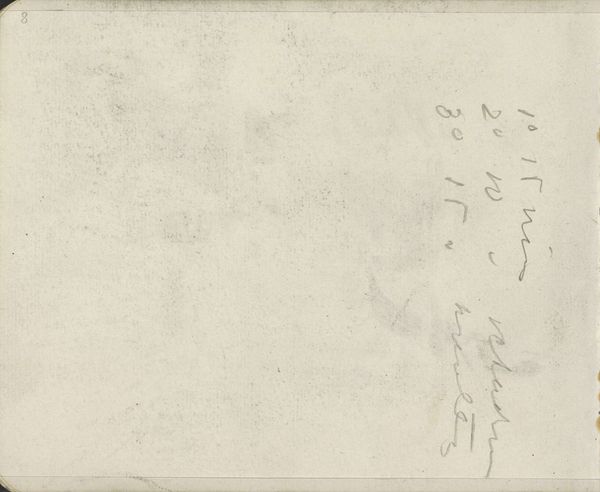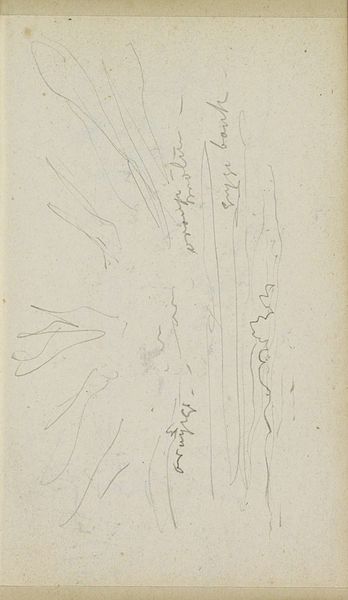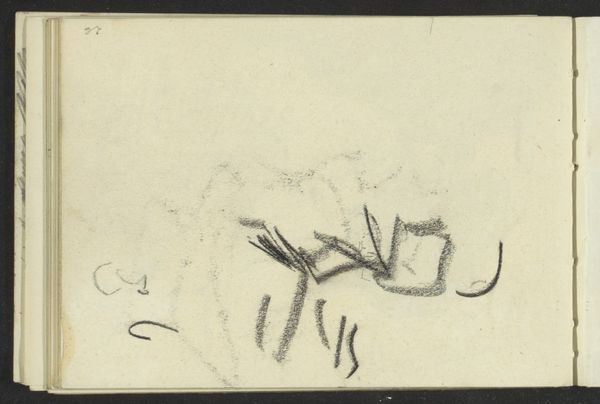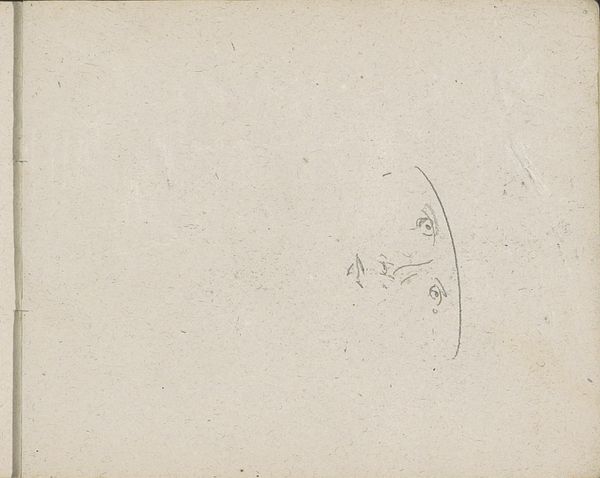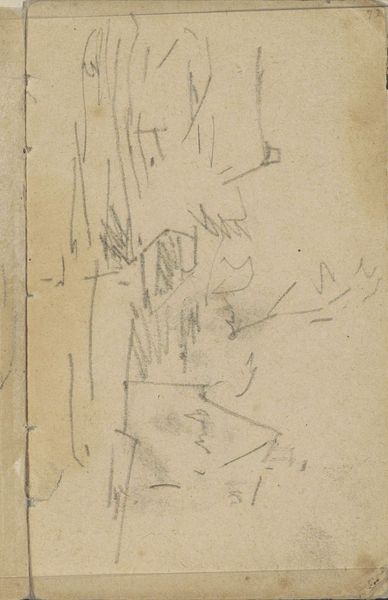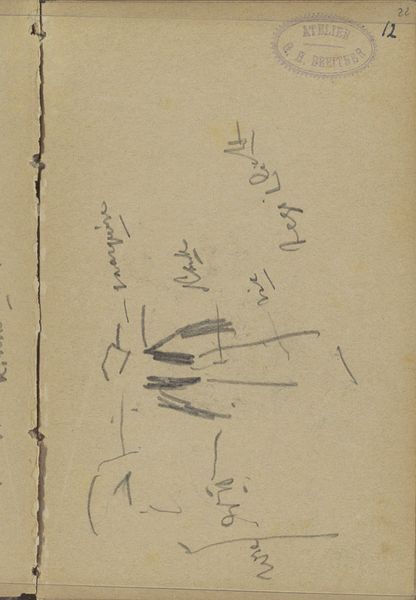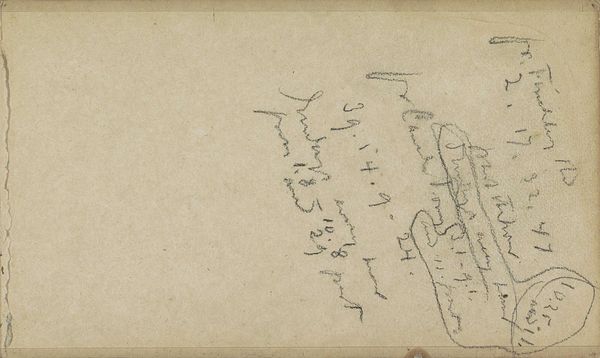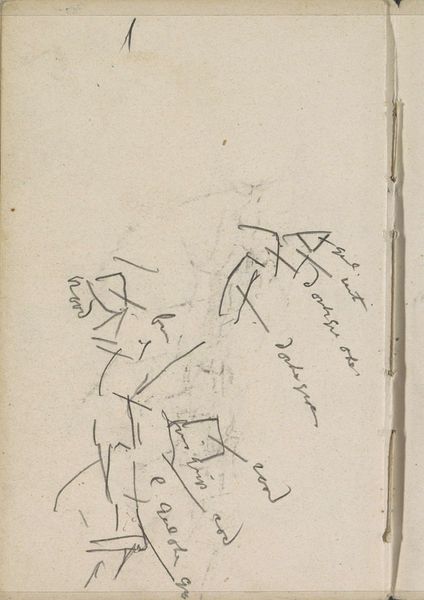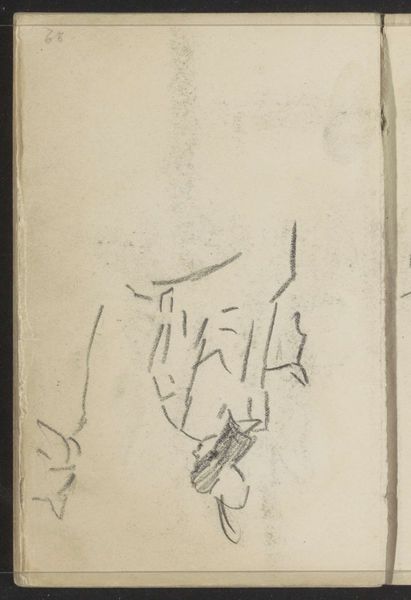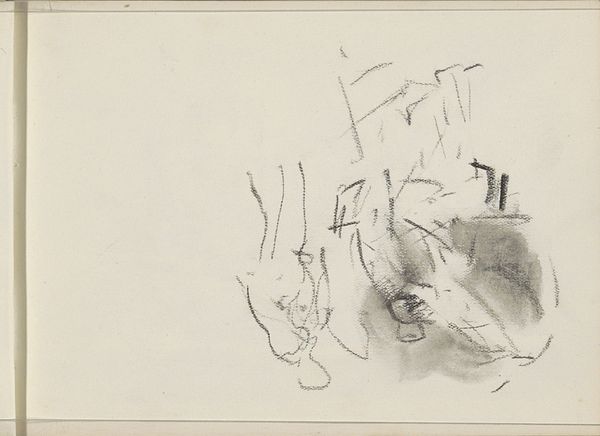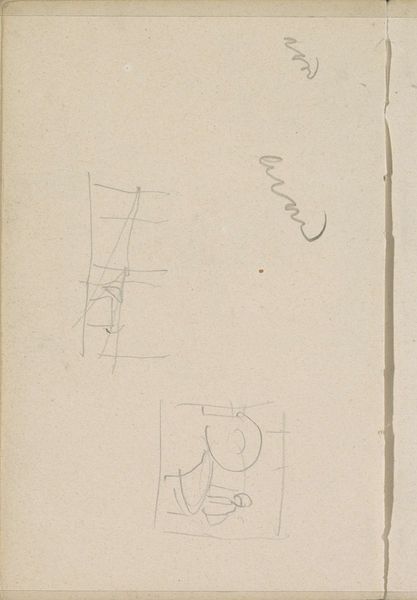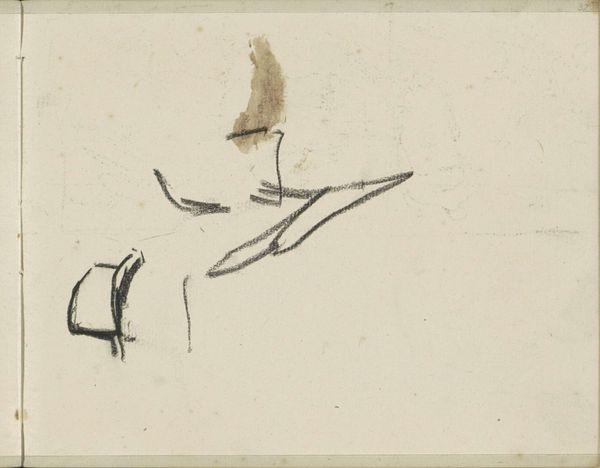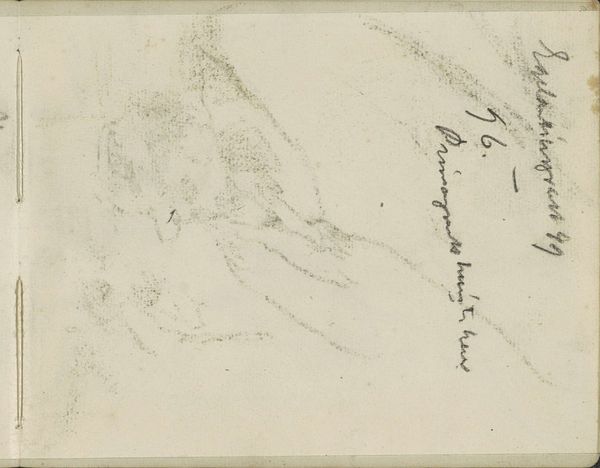
drawing, paper, pencil
#
drawing
#
amateur sketch
#
toned paper
#
light pencil work
#
pencil sketch
#
incomplete sketchy
#
figuration
#
paper
#
personal sketchbook
#
ink drawing experimentation
#
sketch
#
pen-ink sketch
#
pencil
#
sketchbook drawing
#
sketchbook art
#
realism
Copyright: Rijks Museum: Open Domain
This sketch, “Studieblad, mogelijk met katten,” was made by George Hendrik Breitner in the Netherlands, though the date is unknown. With its sparse lines, this study sheet might seem like a minor work, but it provides insight into the world of late 19th-century Dutch art. Breitner was known for his gritty depictions of urban life in Amsterdam. Drawings such as this were created as reference material. How did Breitner's art reflect the broader social and cultural currents of his time? The late 19th century in the Netherlands was a period of rapid industrialization and urbanization. Breitner, like many artists of his generation, sought to capture the realities of modern life, including its less glamorous aspects. His choice of subjects, such as working-class neighborhoods and street scenes, reflects a desire to break away from the idealized and romanticized depictions of the past. To fully understand this work, we can examine the artist's biography, and the influence of the Amsterdam Impressionism art movement, and research the socio-political context in the Netherlands at that time. Art exists within a network of social relations.
Comments
No comments
Be the first to comment and join the conversation on the ultimate creative platform.
